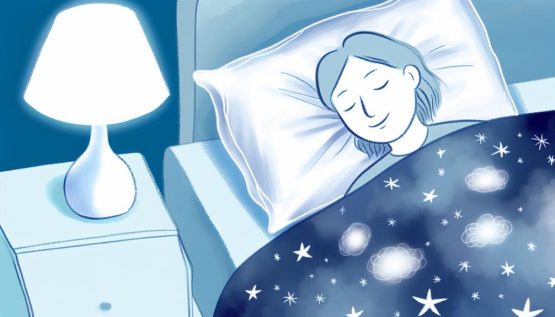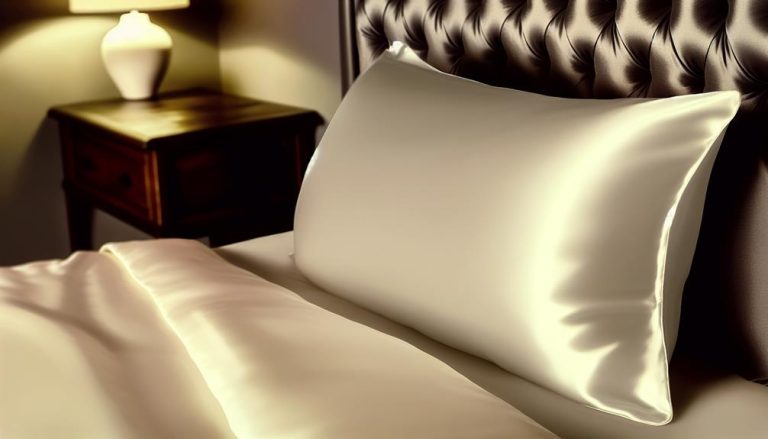Are you tired of not being able to sleep better at night, tossing and turning all night? Do you wake up feeling groggy and sluggish, lacking the energy to tackle the day ahead? We’ve all been there.
That’s why we’re here to help you sleep better at night. In this article, we’ll share proven tips and strategies to optimize your sleep and wake up refreshed and rejuvenated.
So, if you’re ready to take control of your sleep and wake up feeling rested and revitalized, let’s dive into these proven tips to sleep better at night.
Importance – Sleep Better
- As a society, we often underestimate the importance of getting an adequate amount of sleep. We’re constantly on the go, prioritizing work and other responsibilities over our own well-being.
- But the truth is, sleep is essential for our physical, mental, and emotional health. It’s during sleep that our bodies repair and rejuvenate, allowing us to wake up feeling refreshed and ready to take on the day.
- Lack of sleep can lead to a host of issues, including decreased cognitive function, impaired decision-making, and increased risk of chronic diseases.
- By prioritizing sleep and ensuring we get enough rest each night, we can improve our overall quality of life and better serve others by being our best selves.
Bright Light Exposure
To improve sleep quality, we should prioritize daily exposure to natural sunlight or bright light. Bright light exposure has a significant impact on our circadian rhythm, which regulates our sleep-wake cycle.
By getting enough bright light during the day, we can improve our daytime energy levels and enhance the quality and duration of our sleep at night. Research has shown that individuals with insomnia experienced improved sleep quality and reduced time to fall asleep with bright light exposure.
Even older adults benefited from two hours of bright light exposure, experiencing increased sleep duration and efficiency. So, whether you have trouble falling asleep or simply want to optimize your sleep, make sure to spend some time outside or near bright light sources during the day.
It’s a simple yet effective way to improve your sleep and overall well-being.
Blue Light Exposure
Continuing from our discussion on bright light exposure, one important aspect to consider for improving sleep quality is the impact of blue light exposure.
Blue light, especially from electronic devices, can disrupt our circadian rhythm and make it harder to relax and achieve deep sleep. This is because blue light reduces melatonin levels, which is a hormone that helps regulate our sleep-wake cycle.
To reduce blue light exposure, we can wear blue light-blocking glasses, use apps to filter blue light on our devices, and avoid using bright lights and watching TV before bed.
Late Caffeine Consumption
While it’s important to be mindful of our caffeine consumption throughout the day, it’s especially crucial to avoid consuming caffeine late in the day to improve sleep quality. Late caffeine consumption can stimulate the nervous system and disrupt our natural relaxation at night.
To ensure a good night’s sleep, here are some tips:
- Limit caffeine intake after 3-4 p.m. as it can stay elevated in the blood for 6-8 hours.
- Choose decaffeinated coffee as a suitable alternative for late afternoon or evening cravings.
- Be aware of hidden sources of caffeine, such as chocolate and certain medications.
- Experiment with herbal teas or other caffeine-free beverages to satisfy your cravings without affecting your sleep.
Daytime Napping
Daytime napping can have a negative impact on our sleep quality and should be approached with caution. While a short nap of 30 minutes or less can enhance daytime brain function, longer naps can harm our health and sleep quality.
It’s important to be aware that napping too much or at the wrong time can confuse our internal clock, making it harder to sleep at night. One study even found that participants felt sleepier during the day after taking daytime naps.
Consistent Sleep and Wake Times
We prioritize consistent sleep and wake times to optimize our sleep quality and maintain a healthy circadian rhythm. By establishing a regular sleep schedule, we can improve our overall sleep quality and promote long-term health benefits.
Here are four reasons why consistent sleep and wake times are essential for a good night’s sleep:
- Regulates our internal body clock: Consistency in sleep and wake times helps regulate our internal body clock, ensuring that we feel sleepy at the right time and wake up feeling refreshed.
- Enhances sleep quality: A regular sleep schedule allows our bodies to adjust and prepare for sleep, leading to deeper, Sleep Better.
- Improves productivity and focus: Consistent sleep and wake times promote better cognitive function, allowing us to be more productive and focused throughout the day.
- Boosts overall well-being: Maintaining a consistent sleep schedule supports our overall physical and mental well-being, improving our overall quality of life.
Melatonin Supplements
To optimize sleep quality, we recommend considering the use of melatonin supplements. Melatonin is a key sleep hormone that signals the brain to relax and prepare for sleep. Taking 2 mg of melatonin before bed has been shown to Sleep Better and energy the next day.
In fact, a study found that half of the participants experienced faster sleep onset and a 15% improvement in sleep quality with melatonin. Not only is melatonin helpful for treating insomnia, but it can also assist with adjusting to new time zones when traveling.
However, it’s important to consult a healthcare provider before using melatonin supplements. So, if you’re struggling with sleep, melatonin supplements may be worth considering to Sleep Better and overall well-being.
Sleep-Friendly Environment
Creating a sleep-friendly environment is essential for optimizing sleep quality and promoting restful nights. Here are some tips to help you create the ideal sleep environment:
- Keep the bedroom cool, dark, and quiet to enhance sleep.
- Invest in a supportive mattress and pillows for optimal comfort.
- Use blackout curtains or an eye mask to block out light.
- Consider using white noise machines or earplugs to minimize noise disruptions.
By following these tips, you can create a peaceful and comfortable space that promotes relaxation and better sleep. Remember, a good night’s sleep is crucial for overall health and well-being, so it’s worth investing in creating a sleep-friendly environment.
Sweet dreams!
Bedtime Routine
What are some effective ways to establish a bedtime routine that promotes better sleep?
A consistent bedtime routine is key to signaling our bodies that it’s time to unwind and prepare for sleep. Engaging in relaxing activities before bed can help us achieve a more restful night’s sleep.
Consider reading a book, taking a warm bath, or practicing deep breathing exercises. These activities can help calm our minds and release any tension or stress from the day.
By incorporating a bedtime routine into our daily lives, we create a sense of structure and predictability, which can promote better sleep quality.
Other Supplements to Sleep Better
One effective way to enhance sleep quality is by incorporating other supplements into our bedtime routine. Here are some supplements that can help improve sleep:
- Ginkgo biloba: Known for its ability to aid sleep, relaxation, and stress reduction.
- Glycine: Taking 3 grams of glycine can improve sleep quality.
- Valerian root: This supplement can help you Sleep Better and improve overall sleep speed.
- Magnesium: Magnesium is known to improve relaxation and enhance sleep quality.
These supplements can be a valuable addition to our bedtime routine, helping us achieve a deeper and more restful sleep.
It’s important to consult with a healthcare provider before incorporating any new supplements into our routine, especially if we’ve any underlying health conditions or are taking medication.
Avoid Alcohol
In the article ‘Proven Tips to Sleep Better at Night’, we now shift our focus to the subtopic of avoiding alcohol.
When it comes to getting a good night’s sleep, it’s important to steer clear of alcohol before bed. While it may seem like a nightcap can help you relax and Sleep Better, alcohol actually has a negative impact on your sleep quality and hormones. It can cause or worsen sleep apnea, snoring, and disrupted sleep patterns.
Additionally, alcohol consumption at night decreases melatonin production, which is essential for regulating sleep-wake cycles. It also impairs the natural nighttime release of human growth hormone, which plays a role in tissue repair and overall health.
To ensure proper sleep patterns and optimize your sleep quality, it’s best to avoid alcohol before bedtime.
Optimize Bedroom Environment
To create an ideal sleep environment and improve sleep quality, we should focus on optimizing the bedroom setting. Here are some tips to help you create a sleep-friendly bedroom:
- Keep the bedroom cool, dark, and quiet to Sleep Better. Use blackout curtains or an eye mask to block out light, and consider using white noise machines or earplugs to minimize noise disruptions.
- Invest in a supportive mattress and pillows for optimal comfort. A comfortable sleep environment promotes better sleep quality.
- Remove electronic devices from the bedroom to reduce exposure to blue light, which can disrupt the circadian rhythm and make it harder to relax and achieve deep sleep.
- Keep the bedroom clean and clutter-free. A clean and enjoyable bedroom environment can contribute to a sense of calm and relaxation.
Set Bedroom Temperature to Sleep Better
Let’s focus on optimizing the bedroom temperature for better sleep quality. The temperature of your bedroom can greatly impact the quality of your sleep. Finding the right temperature that is comfortable for you is essential. According to experts, a temperature of around 70°F (20°C) is generally considered to be comfortable for most people. However, it’s important to note that individual preferences may vary. To help you determine the ideal temperature for your bedroom, consider testing different temperatures and paying attention to how well you sleep at each setting. Creating a sleep-friendly environment is crucial for a good night’s rest, and setting the right temperature is an important part of that.
| Pros | Cons | Tips to Optimize Bedroom Temperature |
|---|---|---|
| Promotes better sleep quality | High temperatures can be | Experiment with different |
| uncomfortable | temperatures to find what works | |
| best for you | ||
| Use a fan or air conditioning to | ||
| cool down the room in warmer | ||
| climates |
Avoid Late-Night Eating
Late-night eating can disrupt our sleep quality and hinder our ability to get a restful night’s sleep. It’s important to be mindful of what and when we eat before bed to promote better sleep. Consider the following tips to avoid late-night eating:
- Avoid heavy meals close to bedtime: Eating a large, high-fat meal can lead to discomfort and indigestion, making it difficult to fall asleep.
- Choose sleep-friendly snacks: Opt for light, nutrient-dense snacks like a small bowl of whole grain cereal or a piece of fruit.
- Limit caffeine and alcohol consumption: Both can interfere with sleep quality and disrupt the natural sleep-wake cycle.
- Establish a consistent eating schedule: Eating meals and snacks at regular times throughout the day can help regulate hunger and prevent overeating at night.
Relaxation Techniques in the Evening
Engaging in relaxing activities before bed, such as getting a massage or practicing deep breathing, can improve our sleep quality in the evening. These relaxation techniques help calm our minds and prepare our bodies for a restful night’s sleep.
A soothing massage can release tension and promote relaxation, allowing us to drift off to sleep more easily. Deep breathing exercises, on the other hand, can help slow down our heart rate and relax our muscles, creating a sense of calmness and tranquility.
By incorporating these relaxation techniques into our evening routine, we can create a peaceful bedtime environment that promotes better sleep. So, take some time for yourself in the evening and indulge in activities that help you unwind and find inner peace.
Your body and mind will thank you, and you’ll wake up feeling refreshed and energized.
Frequently Asked Questions
How Does Poor Sleep Affect Hormone Levels?
Poor sleep affects hormone levels in several ways. It can disrupt the production and release of important hormones like melatonin, which regulates sleep-wake cycles.
Additionally, poor sleep can lead to imbalances in hormones that control appetite, such as ghrelin and leptin, resulting in increased hunger and potential weight gain.
Hormones involved in stress response, like cortisol, can also be affected by inadequate sleep, impacting overall well-being.
Prioritizing good sleep habits is essential for maintaining healthy hormone levels.
Can Exposure to Natural Sunlight Improve Sleep Quality?
Exposure to natural sunlight can indeed improve sleep quality. Daily exposure to bright light helps maintain a healthy circadian rhythm and enhances daytime energy. It can also improve sleep duration and efficiency, especially in older adults.
Even individuals with average sleep can benefit from daily light exposure. So, if you’re looking to sleep better at night, make sure to get some sunlight during the day. It’s a simple and effective way to optimize your sleep and overall health.
What Are Some Methods to Reduce Blue Light Exposure Before Bed?
To reduce blue light exposure before bed, we can try wearing blue light-blocking glasses or using apps to filter blue light on our devices.
Turning off bright lights and avoiding TV before bed also helps.
By reducing blue light exposure in the evening, it becomes easier to fall asleep and improve sleep quality.
Taking these steps can help us create a sleep-friendly environment and promote better rest at night.
How Long Does Caffeine Stay Elevated in the Blood?
Caffeine stays elevated in the blood for 6-8 hours. It stimulates the nervous system and disrupts natural relaxation at night, leading to worsened sleep quality.
To improve sleep, it’s important to avoid consuming caffeine late in the day. Instead, opt for decaffeinated coffee as a suitable alternative.
What Are the Recommended Sleep and Wake Times for Maintaining a Healthy Circadian Rhythm?
For maintaining a healthy circadian rhythm, it’s recommended to have consistent sleep and wake times. This helps regulate our internal clock and promotes better sleep quality.
Irregular sleep patterns and late bedtimes can disrupt our circadian rhythm, making it harder to fall asleep. By developing a habit of waking up and going to bed at similar times, we can improve our sleep quality over time.
Conclusion
In conclusion, by implementing these proven tips and strategies, you can take control of your sleep and wake up feeling rested and revitalized.
Prioritize the importance of sleep and create a sleep-friendly environment in your bedroom.
Be mindful of your exposure to bright and blue light, as well as your caffeine consumption.
Avoid daytime napping and late-night eating, and try relaxation techniques in the evening.
With these changes, you can optimize your sleep and experience the countless benefits of a good night’s rest.
Sweet dreams!






